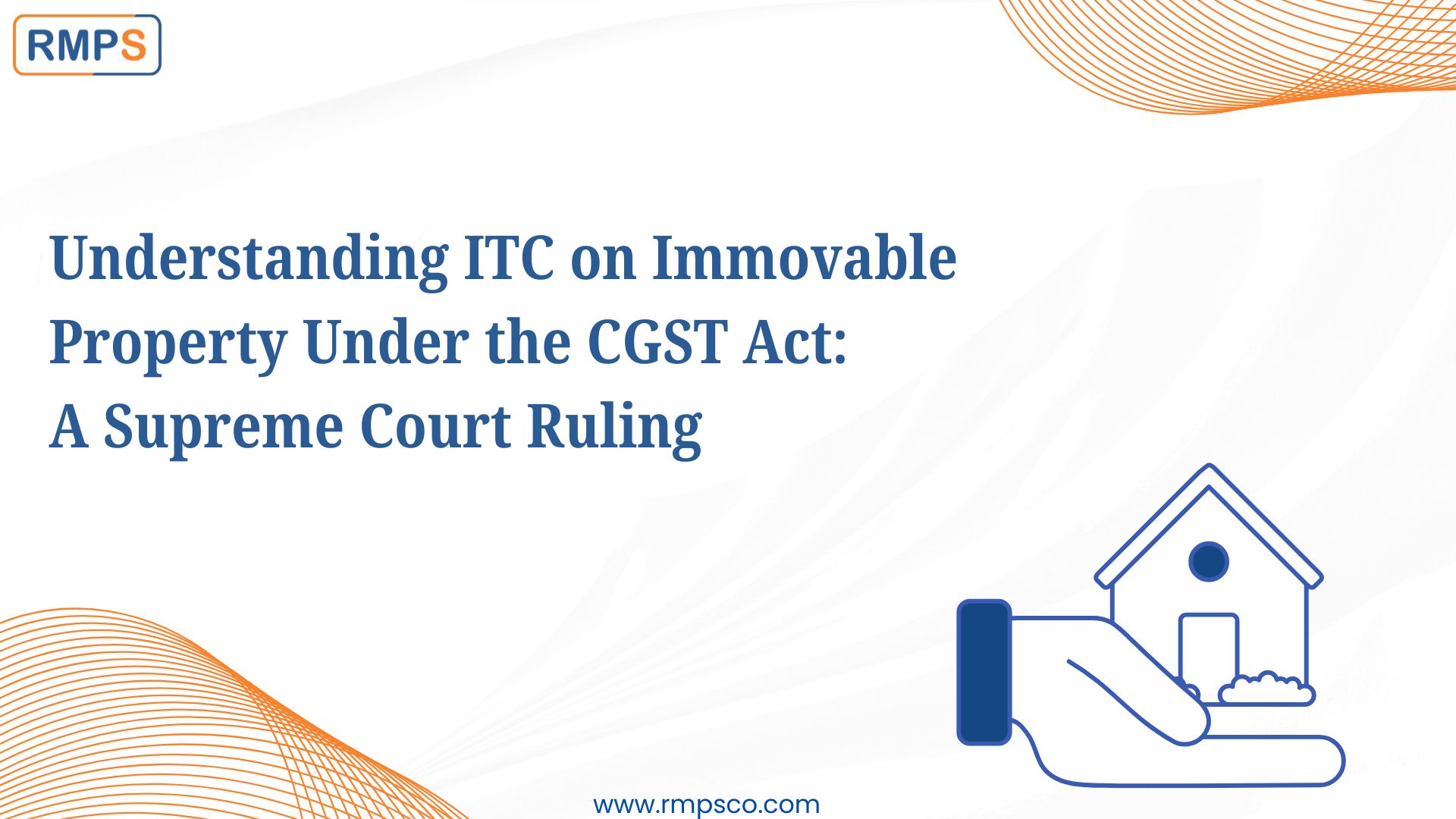
The Supreme Court of India recently clarified the rules for claiming Input Tax Credit (ITC) under the Central Goods and Services Tax (CGST) Act, 2017. This ruling directly impacts businesses that build commercial properties, such as malls and hotels, for renting or leasing.
The Issue with ITC for Immovable Property
Under the current CGST Act, businesses cannot claim ITC on the goods and services used to construct immovable properties like shopping malls or office spaces. However, even though they pay GST on renting out these properties, they cannot offset the GST paid on construction expenses. As a result, companies face double taxation, which increases their financial burden.
Moreover, businesses have argued that this situation is unfair. Since they are generating taxable income by renting out these properties, they believe they should be allowed to claim ITC on construction expenses. Without ITC, their costs rise, which contradicts the main objective of the GST system—to prevent the cascading of taxes.
Supreme Court’s Ruling
The Supreme Court ruled that businesses constructing commercial properties should be allowed to claim ITC. The Court emphasized that preventing ITC creates double taxation, which conflicts with the goals of the GST system. The system was designed to ensure businesses do not pay taxes multiple times on the same goods or services.
Therefore, this decision is crucial as it protects businesses from unnecessary tax burdens. It also reinforces that tax laws should help businesses reduce their tax liabilities, rather than increase them unfairly.
Impact on Businesses
This ruling will significantly benefit companies in real estate, hospitality, and other commercial sectors. They can now claim ITC on construction materials and services, reducing their total tax liability.
For instance, a company building a mall can claim ITC on construction inputs like cement and steel. This credit can be used to reduce the GST paid on rental income, thus lowering the overall tax burden and making operations more cost-effective.
Conclusion
The Supreme Court’s decision is a major relief for businesses that construct commercial properties. By allowing ITC on construction expenses, the ruling prevents double taxation, ensuring that the GST system works as intended. Ultimately, this decision supports fair taxation and helps businesses operate more efficiently.
For more information please refer below :
LinkedIn Link : RMPS Profile
This article is only a knowledge-sharing initiative and is based on the Relevant Provisions as applicable and as per the information existing at the time of the preparation. In no event, RMPS & Co. or the Author or any other persons be liable for any direct and indirect result from this Article or any inadvertent omission of the provisions, update, etc if any.
Published on: October 5, 2024
